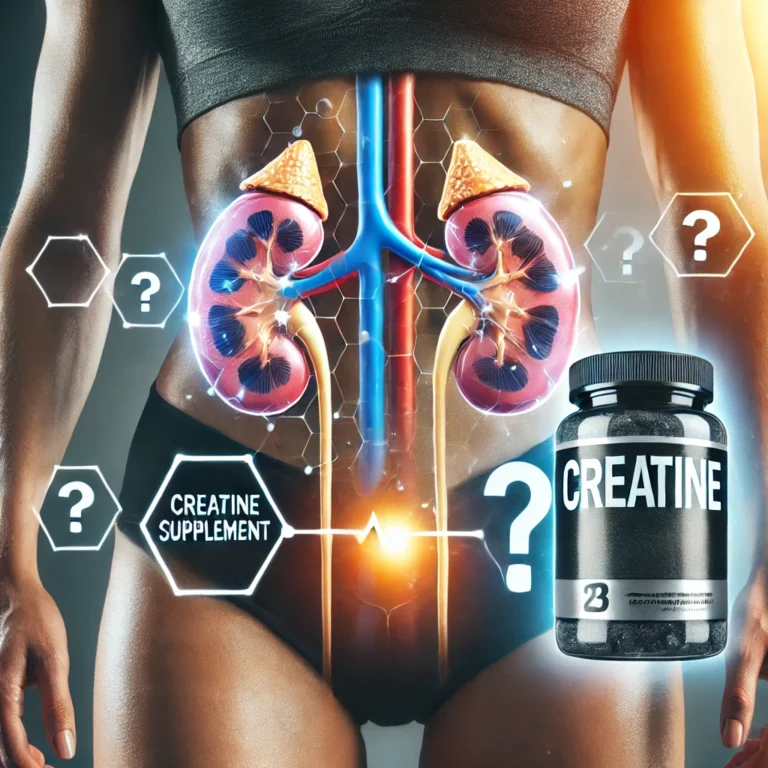The most popular supplement in the world of fitness is probably the very one that boasts an ability to increase athletic performance, build muscle mass, and enhance workout endurance: creatine. A go-to supplement for the athletes and bodybuilders, it is considered safe, especially if applied appropriately, but side effects exist and should be regarded.
In this blog, we explore the possible side effects of creatine, what it does to your body, and tips on using creatine safely to achieve your fitness goals.
What Is Creatine?
Creatine is a natural product that occurs in the muscle cells, which enhances the ability of muscles to strengthen their energy production during heavy work exercise, such as weightlifting or sprinting. Your body produces natural creatine from amino acids, but it can also obtain through diet factors, such as red meat and fish. Creatine supplements are usually taken as a performance-enhancing exercise and possibly for building up muscular masses. However, the benefits of creatine are well noted, there are crucial side effects one may expect, especially if this supplement is taken in supplement form.
Common Side Effects of Creatine
Most people who take creatine do not experience acute side effects; however, some individuals may have minor issues. Among some common side effects associated with the use of creatine, the following are included:
1. Water Retention and Weight Gain
One of the most reported side effects with creatine is water retention. Creatine pulls water into your muscle cells, and that draws temporary weight in the form of water weight. Such is harmless, but for some users it will be quite discomforting, especially if they are on a weight loss program.
2. Digestive Problems
Some side effects may be felt on the digestive system from creatine supplementation; this may be associated with high doses. The symptoms may include bloating, stomach cramps, diarrhea, or nausea. Mostly, such conditions are not of severity and can be lessened by lowering the dosage, or one can take it with enough water.
3. Dehydration
Creatine has increased the retention of water in muscles sometimes, which might lead to dehydration if excessive water is not taken. This is a high risk for athletes engaging in high strenuous exercise or training in hot climate conditions. Therefore, customers should take lots of water so as not to experience the symptoms of dehydration, such as dizziness, fatigue, and headaches.
4. Kidney Problems (in Some People)
The debate if creatine causes kidney damage continues, especially in subjects with pre-existing kidney problems. Though there is scientific proof that shows creatine is safe to a person without a disease, some doctors do not recommend supplementing creatine with a patient who has a disease problem in the kidneys because it will further increase the burden on the kidneys.
5. Muscle Cramps
In some cases, creatine can cause muscle cramps, especially when an individual is not well hydrated. Cramping may be painful and put a damper on your workout regimen. Maintaining hydration levels and electrolytes can minimize the potential for cramping while supplementing with creatine.
6. Increased Risk of Injury
Creatine increases water retention and muscle growth, which may have people working extra hard on exercises. This increases chances of strains or injuries in the muscles if proper form and recovery are not taken into consideration.
7. Condition of High Blood Pressure Somatics
In rare cases, creatine supplements may lead to a temporary increase in blood pressure because of water retention. Those who already have blood pressure that’s elevated should monitor their condition closely or see a doctor before using creatine.
Myths and Misconceptions About Creatine Side Effects
There are many myths and misconceptions regarding creatine and its safety. So here are some of the most common ones:
1. Creatine Causes Long-Term Kidney Damage
There is no evident proof that it causes any permanent damage to the kidneys in healthy subjects. Studies have proved that creatine is safe for most of those who take it based on its recommended instructions. However, any patients with a prevailing kidney disorder must first consult his or her doctor before using the supplement.
2. Creatine Causes Hair Loss
It also claims to cause hair loss or male pattern baldness. However, there is no scientific evidence proving the claim. In one study, this supplement was said to relate to an increase of DHT hormone, which allegedly leads to hair loss. It must be proven through more research.
How to Use Creatine Safely
The supplement has to be used in an appropriate manner without causing side effects and maximum benefit from it. Some tips for using creatine safely are as follows:
1. Dosage according to the recommended quantity
It would avoid side effects if the proper dosages of creatine were being taken. Commonly suggested doses are 3-5 grams a day, though many individuals would perform the loading phase of 20 grams daily for the first 5-7 days followed by a maintenance dose. This is not necessary for everyone though.
Since creatine tends to retain water, it is advisable to drink plenty of fluids in a day. Proper hydration will ensure that the individual is hydrated before, during, and even after their exercise routine to avoid chances of dehydration and cramping.
2. With Food or Water
To minimize side effects experienced regarding stool problems, take creatine with food or mix it with water. This way, the absorption will be improved to reduce possible discomfort in the stomach.
3. See the Doctor About Your Pre-Existing Diseases: If you have pre-existing illnesses, especially any related to kidney or hypertension, see the doctor before ingesting creatine because it’s not safe for them.
Way Forward
While creatine happens to be a supplement with high performance and muscle building, it would be useful to know about its side effects. However, if taken responsibly, with an appropriate hydrated level, and only the recommended dosages, most users will not suffer from side effects and enjoy the benefits brought by this popular supplement. As always, any consultation with a healthcare provider is advisable and more so if you have any pre-existing health conditions.


